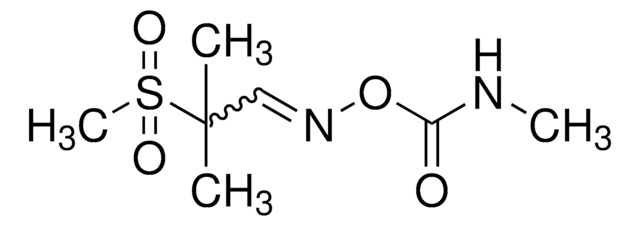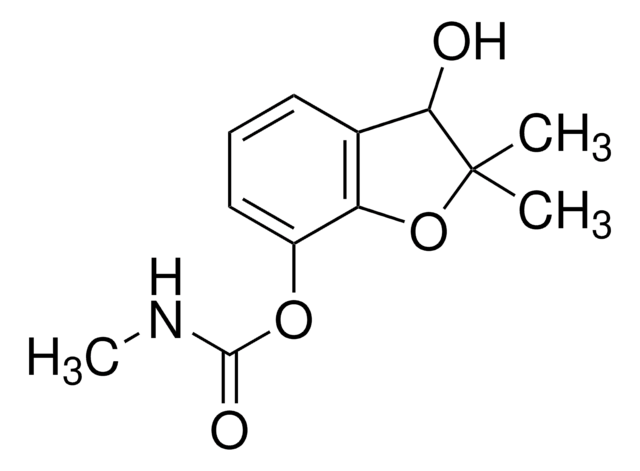About This Item
Recommended Products
grade
analytical standard
Quality Level
product line
PESTANAL®
shelf life
limited shelf life, expiry date on the label
technique(s)
HPLC: suitable
NMR: suitable
gas chromatography (GC): suitable
impurities
≤0.5% water (Karl Fischer)
mp
132-135 °C
suitability
passes test for identity (NMR)
application(s)
agriculture
environmental
format
neat
SMILES string
CNC(ON=CC(C)(C)S(C)(=O)=O)=O
InChI
1S/C7H14N2O4S/c1-7(2,14(4,11)12)5-9-13-6(10)8-3/h5H,1-4H3,(H,8,10)
InChI key
YRRKLBAKDXSTNC-UHFFFAOYSA-N
Looking for similar products? Visit Product Comparison Guide
General description
Application
Legal Information
Signal Word
Danger
Hazard Statements
Precautionary Statements
Hazard Classifications
Acute Tox. 2 Dermal - Acute Tox. 2 Inhalation - Acute Tox. 2 Oral - Aquatic Acute 1
Storage Class Code
6.1A - Combustible acute toxic Cat. 1 and 2 / very toxic hazardous materials
WGK
WGK 3
Flash Point(F)
Not applicable
Flash Point(C)
Not applicable
Personal Protective Equipment
Choose from one of the most recent versions:
Already Own This Product?
Find documentation for the products that you have recently purchased in the Document Library.
Chromatograms
application for LC-MS, application for SPEOur team of scientists has experience in all areas of research including Life Science, Material Science, Chemical Synthesis, Chromatography, Analytical and many others.
Contact Technical Service








